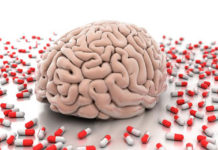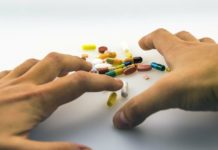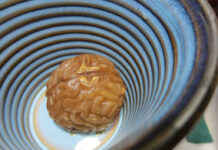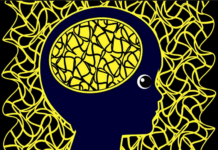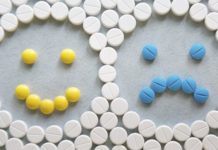New Research Suggests Brain Abnormalities in ‘Schizophrenia’ May Result From Antipsychotics
Study finds that reduced cortical thickness and brain surface area associated with 'schizophrenia' may result from antipsychotic drug use.
A New Silver Bullet? The Lurasidone Story
Recently, I have been the target of much wooing by my local Sunovion rep. I think he leaves messages for me almost weekly and he sends me missives - glossy brochures and reprints from major psychiatric journal. What is the subject of this attention? The drug - lurasidone (Latuda).
Brain Implants: Spinning the Trial Results to Protect the Product
The published report of the Broaden Trial of Deep Brain Stimulation for Depression whitewashed the results: although the efficacy results were negative, the investigators concluded that the therapy still showed "promise", and adverse events suffered by the patients were downplayed or attributed to the disease, and not the treatment. An in-depth investigation of how the trial results were spun, and interviews with patients that tell of harm done.
The Breaking Point
How did I become someone who could barely function? I was a high-performing sales executive ranked in the top 2% of an international business communications company. But now, after using powerful psych meds for depression and anxiety for more than a decade, I couldn’t do basic things like go to the grocery store, plan a meal, make dinner, or get together with friends.
Ambushed by Antidepressants for 30 Years
They helped me function for a while, but the debilitating side effects of antidepressants held me prisoner. I'm still having a hard time understanding how this could have happened. It's been suggested to me by a therapist that what I'm going through now is another kind of PTSD: the ongoing trauma of realizing what antidepressants did to me for 30 years.
Rejecting the “Medications for Schizophrenia” Narrative: A Survivor’s Response to Pies and Whitaker
As a psychiatric survivor who has personally experienced severe psychosis, my criticisms focus on the relative lack of attention to what psychiatric drugs actually are, and on the uncertain, contested nature of the supposed target of these drugs: “schizophrenia.” I will elaborate on each of these points with references, as well as highlighting alternative approaches to helping psychotic people.
What It’s Like to Be Involuntarily Committed
Ten years after being fired for taking a mental health leave after the Virginia Tech massacre, I was diagnosed as "schizophrenic" and involuntarily committed to a hospital. Now I have a job and a life, but I'm still forced to take drugs and report to a social worker.
Researchers: “Antidepressants Should Not be Used for Adults with Major Depressive Disorder”
A new review, published in BMJ Evidence-Based Medicine, concludes that antidepressants should not be used as the risks outweigh evidence for benefits.
Researchers Set the Record Straight on Controversial Zoloft Study
An issue of Lancet Psychiatry is devoted to clarifying the lack of efficacy for Zoloft (sertraline).
Fighting for the Meaning of Madness: An Interview with Dr. John Read
Akansha Vaswani interviews Dr. John Read about the influences on his work and his research on madness, psychosis, and the mental health industry.
Brain Scans Cannot Differentiate Between Mental Health Conditions
A new study analyzing over 21,000 participants found that differences in activation of brain regions in different psychological “disorders” may have been overestimated, and confirms that there is still no brain scan capable of diagnosing a mental health concern.
Trauma Resiliency Model: A New Somatic Therapy for Treating Trauma
Report presents new body-based therapeutic approach for shock and complex developmental trauma.
New Study Casts Doubt on Efficacy of Ketamine for Depression
A new study, published this month in the Journal of Affective Disorders, investigated the effectiveness of weekly intravenous ketamine injections as a treatment for...
Long-term Usage of ADHD Drugs Linked to Growth Suppression
Findings suggest that treatment not only fails to reduce the severity of “ADHD” symptoms in adulthood but is associated with decreased height.
Antipsychotic Medications Are Causing Obsessive Compulsive Disorders
Common second-generation antipsychotic medications are causing symptoms of obsessive-compulsive disorder to emerge in many people who previously only had schizophrenia symptoms, according to a...
The Temptation of Certainty: David Foster Wallace, Suicide and Psychiatric Drug Withdrawal
While increasing numbers of Americans are being prescribed antidepressants, the Centers for Disease Control reports that suicide rates increased 28% from 1999 to 2010. Trained professionals remain unable to predict who is at risk. Their guess is as good as chance.
Antidepressants Make Things Worse in the Long Term
Antidepressants may be effective over the short term, but research is showing that treatment resistant depression has risen dramatically in the past 30 years; evidence that the drugs may be inducing chronic depression.
Living in an Age of Melancholy: When Society Becomes Depressed
In a recent Ted Talk, “Depression is a Disease of Civilization.” professor Stephen Ilardi advances the thesis that depression is a disease of our modern lifestyle. As an example, Ilardi compares our modern culture to the Kaluli people — an indigenous tribe that lives in the highlands of New Guinea. When an anthopologist interviewed over 2,000 Kaluli, he found that only one person exhibited the symptoms of clinical depression, despite the fact the Kaluli are plagued by high rates of infant mortality, parasitic infection, and violent death. Yet, despite their harsh lives, the Kaluli do not experience depression as we know it.
This is the Truth About Personality Disorders
From The Independent: Armchair diagnoses of personality disorders are a rising trend, from speculations that President Trump has narcissistic personality disorder to viral articles about discerning...
Psychotherapy Less Effective for People in Poverty and Those on Antidepressants
A new study finds poorer depression and anxiety outcomes in psychotherapy for people in economically deprived neighborhoods and those on antidepressants.
Risk of Suicide After Hospitalization Even Higher Than Previously Estimated
New analysis of post-discharge suicide rates finds estimates 6 times higher than recent studies.
A Tale of Two Studies
With increasing evidence that psychiatric drugs do more harm than good over the long term, the field of psychiatry often seems focused on sifting through the mounds of research data it has collected, eager to at last sit up and cry, here’s a shiny speck of gold! Our drugs do work! One recently published study on withdrawal of antipsychotics tells of long-term benefits. A second tells of long-term harm. Which one is convincing?
Researchers: Antidepressant Withdrawal, Not “Discontinuation Syndrome”
Researchers suggest that the pharmaceutical industry had a vested interest in using the term “discontinuation” in order to hide the severity of physical dependence and withdrawal reactions many people experience from antidepressants.
Mental Illness Vs. “Bad” Behavior
Allen Frances has claimed that "It's a great mistake to confuse bad behavior with mental illness." Yet two of the so-called mental illnesses (conduct disorder and antisocial personality disorder) consist essentially of "bad" behavior, while in at least six others, "bad" behavior is an integral part of the problem.
Schizophrenia Genetic Research – Running on Empty
The time has come to halt the massive failure that has characterized schizophrenia molecular genetic research, and to thoroughly reassess what critics have always said are the severely flawed family, twin, and adoption studies that inspired and helped justify this research.

